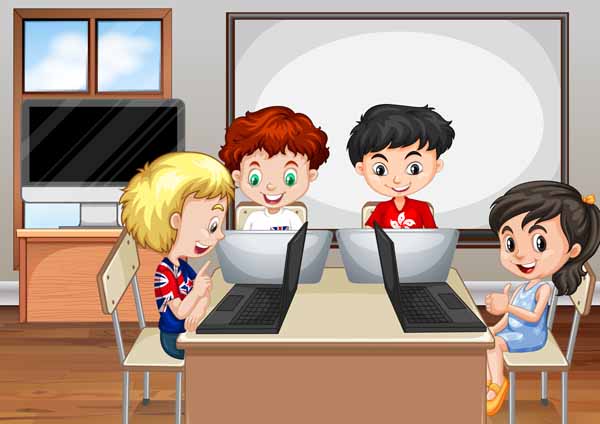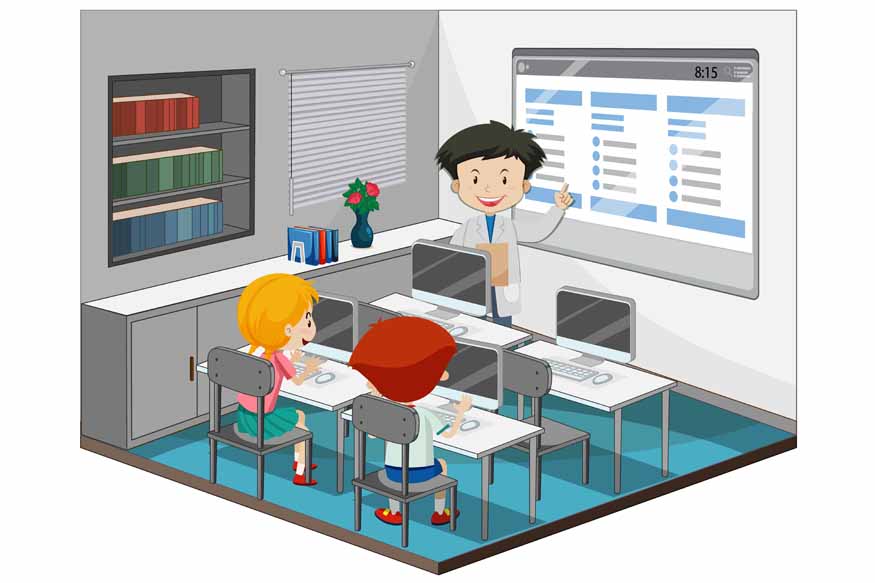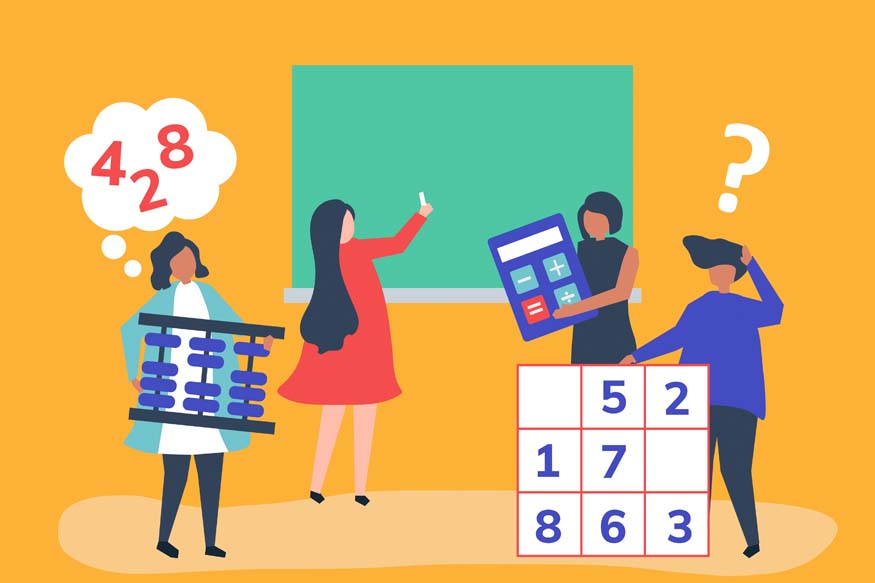The term computer education is broad, but it mainly focuses on two ideas: learning how to use computers and gaining knowledge about them. The meaning of computer education has changed over time. In the past, computers used complex languages that only a few qualified individuals could understand. However, with technological advancements, computers have become more accessible and capable of performing complex tasks for everyday users. As technology continues to evolve, the use of computers will become even more common in society.
Uses of computers in education

The advantages of computer education in classrooms are well-known, but the way computers are used has changed. Students now have more access to IT resources than ever before.
- Quick access to information:
- Personalisation in education:
- Prepares them for tomorrow:
- Preferred education methodologies:
Computers provide students quick access to answers beyond their textbooks. Today’s kids often use Google to look up information because they are used to it. Computers also help students explore any topic in more depth while guiding them to the right resources.
Students like using computers in their learning. They appreciate the chance to learn at their speed, and computers help with that. Whether it’s through projectors, robotics, or other tools, students are excited to learn from technology. Computers and various tech tools improve classroom teaching and introduce fresh ways to learn.
Teaching kids about computers in school helps them get ready for the future. Computers are essential in many jobs, whether in business or other fields. When children learn to use computers early on, they gain the confidence to tackle challenges in life. This means they are better prepared for the job market, and students who learn computer skills in school will be proficient in using them later on.
Students appreciate having computers in their curriculum due to their familiarity with mobiles, tablets and other electronic devices. This familiarity makes learning about computers easy.
Types of computer education
Computer education is primarily of two types: basic and advanced. Basic computer education includes the fundamentals of computers, like hardware, software, and operating systems. It also shows students how to use popular software tools, such as word processors, spreadsheets, and presentation programs. Advanced computer education dives into specific fields of computer science, including programming, networking, and security. It teaches students how to create software applications and how to design and set up computer networks.
While students get to experience the above computer education modes in their schools, they can also gain a deeper understanding of this world through the following modes:
Coding boot camps: These are short, focused programs that teach coding skills quickly.
Online courses: These courses allow you to learn about computers at your own pace and convenience.
Certification programs: These programs help you gain the skills needed to obtain recognized certifications in the industry.
Regardless of your interest or experience level, you can find a suitable computer education option. With many choices available, you can select a program that aligns with your goals.
Benefits of computer education in schools

Computer education helps students think critically, solve problems creatively, and gain technical expertise. It also teaches them how to communicate well and work in teams, along with ways to find and use information. In today’s digital world, computer education is essential for success in school, work, and life.
- Skill development:
- Career opportunities:
- Increased efficiency:
- Connectivity:
- Empowerment:
- Lifelong learning:
It builds important tech skills needed in our digital age. Understanding software, hardware, and how to use the internet is valuable for both personal and work-related tasks.
Being skilled in computers opens up many job options, such as software development, data analysis, cybersecurity, and digital marketing.
Computer skills make tasks like managing data, communicating, researching, and creating presentations faster and more effective.
The internet, a key part of computer education, allows people to connect globally, making communication and sharing information much easier.
Being computer literate helps people gain better access to information, services, and opportunities, which can lead to economic growth.
The internet offers many resources for ongoing education, helping people stay informed and competitive.
Computer education in schools brings many benefits that are crucial for preparing students for the future. Computers improve learning by giving access to a wide range of resources and information, allowing for personalised learning, and promoting digital skills. These tools make education more engaging and interactive, which can greatly boost student motivation and involvement. Moreover, computer education develops critical thinking and problem-solving abilities as students learn to use different software and online platforms.

At Center Point School, computers are an integral part of the curriculum. It is designed to deliver a blend of technology with traditional teaching methods. By incorporating computers into our classrooms, we ensure that our students gain the skills necessary to thrive in a digital world. This includes not only technical abilities but also effective collaboration and communication in online settings.





